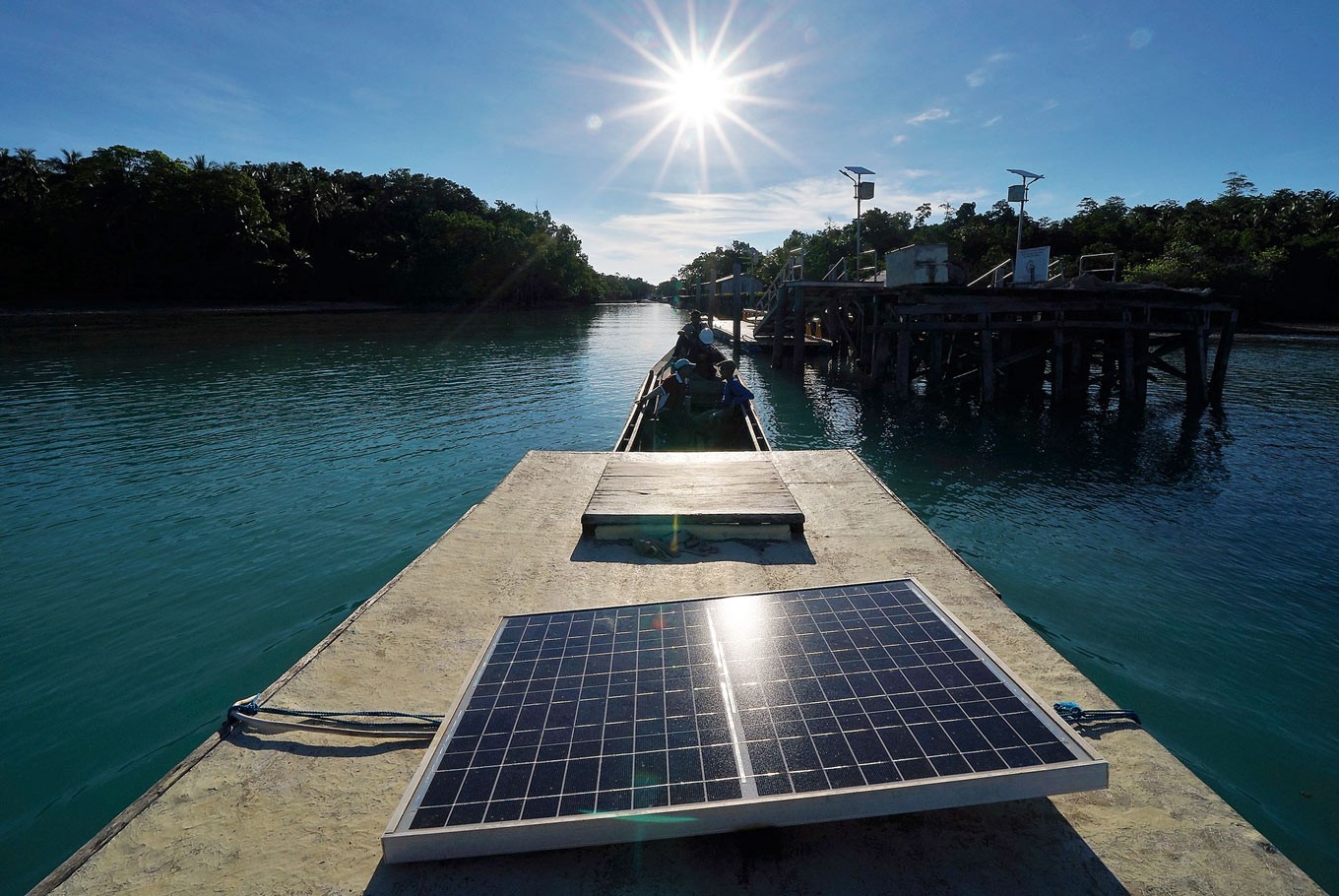Popular Reads
Top Results
Can't find what you're looking for?
View all search resultsPopular Reads
Top Results
Can't find what you're looking for?
View all search resultsIndonesia needs renewable energy law to pave way for cleaner energy
It is high time that Indonesia passed a renewable energy law to provide the necessary legal certainty for accelerating renewable energy development and to commit to its energy transition.
Change text size
Gift Premium Articles
to Anyone
G
iven its abundant renewable energy potential, Indonesia has set an ambitious target of increasing the share of renewable energy (RE) to 23 percent of the national energy mix by 2025. As of the end of 2020, however, the RE share had reached just 11.51 percent, well below the initial target of 13.4 percent set by the New and Renewable Energy and Energy Conservation Directorate (EBTKE).
The COVID-19 pandemic has indeed slowed progress on several renewable energy projects. But the lengthy process of drafting a regulatory framework on renewable energy has contributed significantly to the snail’s pace of Indonesia’s energy transition compared to other Southeast Asian countries such as Vietnam.
The new and renewable energy bill (RUU EBT) has been on the table for almost four years since it was initiated by the Regional Representatives Council (DPD), in cooperation with the Indonesian Renewable Energy Society (IRES). Several public consultations have been held to gather the people’s aspirations. Eventually, House of Representatives Deputy Speaker Eddy Soeparno announced that deliberation of the bill would begin in June 2021.
Regulatory support for renewable energy is desperately needed, since it will significantly impact the country’s renewable energy targets. There are several ways the bill can help Indonesia achieve its renewable energy target.
The renewable energy regulations fall under several ministries. For example, fiscal schemes like tax incentives and tax allowances are regulated under the Finance Ministry, while the Environment and Forestry Ministry regulates the environmental impact analysis (AMDAL). This silo effect has resulted in complicated bureaucratic red tape and uncertain regulatory frameworks that discourage developers.
Not only do RE developers have to deal with multiple government agencies to obtain a series of required permits, but they must also risk their investment in light of the legal uncertainty. Enacting a renewable energy law would provide a strong legal basis for RE development that is not open to easy intervention, as well as a solid foundation for other derivative regulations.
The upcoming bill would support the recent RE-related regulations by tackling the silo effect and prioritizing RE-generated electricity over fossil fuel energy.
Achieving the 2025 target will require extra efforts to boost RE investment in Indonesia. The country allocated US$2.3 billion for RE investment in 2020 alone. According to a study by the Institute for Essential Services Reform (IESR), however, only $1.4 billion, or 60 percent of the budget, has been used. Regardless of the COVID-19 pandemic, this discrepancy would not have happened if the country had a strong regulatory framework on renewable energy.
According to the IESR’s Indonesia Energy Transition Outlook 2021, which refers to Article 53 in the renewable energy bill, the funds for renewable energy development can be sourced from carbon trading and renewable energy certificates, as well as the state and provincial budgets. With funding from several sources, investments in renewable energy are thus expected to grow.
While this shows the government’s commitment to cleaner energy, the bill cannot tackle all issues related to RE development and investment in the country.
According to a policy brief from the ASEAN Centre for Energy (ACE), the government needs to take tough actions to boost RE investment, such as removing the fossil fuel subsidies, establishing a dedicated RE ministry, improving grid management and streamlining, encouraging domestic banking support for RE, supporting local content and prioritizing market entry for investors.
The bill will likely attract private investments by regulating the feed-in tariff (FIT) as the renewable energy pricing policy. As in Vietnam, which has succeeded in increasing its renewable energy capacity, implementing the FIT could be a strategic solution to accelerating RE development. The renewable energy bill can also provide some clauses on RE financing sources to tackle the issue of bankability.
Apart from the absence of a pricing policy, the other obstacle to bankability is that most domestic banks are unfamiliar with financing renewable energy projects. Indonesian banks deserve attractive incentives so they can leverage financial assistance for small-scale RE projects, especially in remote areas.
A robust regulatory framework will drive the market mechanism for renewable energy. The RE bill can introduce the so-called Renewable Portfolio Standard (RPS), a policy that requires fossil fuel energy businesses like electricity and oil and gas companies to allocate a certain percentage of its electricity consumption to renewable energy. Those that fail to comply will be penalized.
In the event that these businesses cannot yet implement the RPS, they can purchase RE certification that serve as “apportionment”, and the funds raised from these certificates can be put back into RE development. Implementing the RPS and RE certification will thus have a direct impact on RE development.
Indeed, there is no silver bullet to tackle all issues to boost the development of cleaner energy. Nevertheless, the RE bill is a necessity, since it will provide legal certainty and pave the way for RE investments. More importantly, enacting a renewable energy law will prove the government's commitment to energy transition.
***
Muhammad Oktada Hilman is a Modelling and Policy Planning intern at the ASEAN Centre for Energy (ACE); Muhammad Rizki Kresnawan is Modelling and Policy Planning officer at ACE. The opinions expressed in this article are personal.










